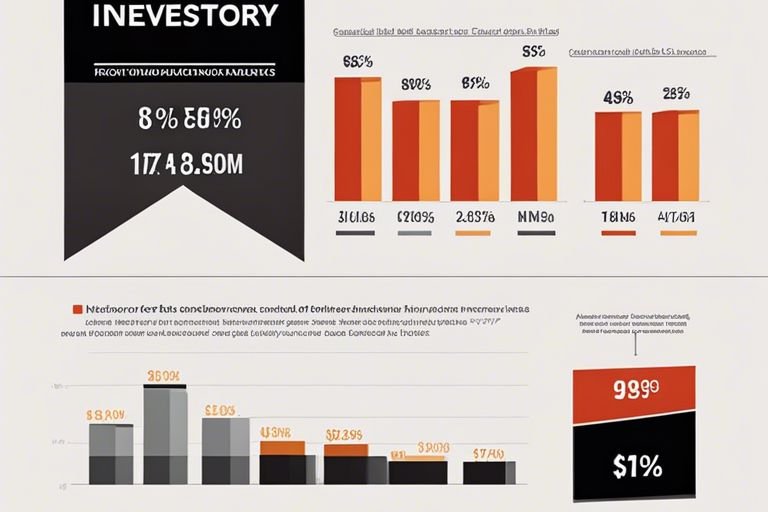Inventory in Charlotte’s housing market today is low, impacting your ability to find the perfect home. With a limited number of available properties, you may face stiff competition and higher prices. Understanding the current state of housing inventory can help you navigate the market more effectively and make informed decisions when searching for your dream home in Charlotte.
Key Takeaways:
- Low Inventory: Charlotte currently has a low housing inventory, which means there are fewer homes available for sale.
- High Demand: The high demand for homes in Charlotte has resulted in quick sales and multiple offers on properties.
- Rising Prices: With low inventory and high demand, home prices in Charlotte have been steadily increasing in recent months.
Current State of Charlotte Housing Inventory
Overview of the Market
The Charlotte housing market is currently experiencing a period of high demand and low supply. As a result, finding a suitable property that meets your needs may be a competitive endeavor. State of the market shows that homes are being snatched up quickly, often with multiple offers above asking price.
Key Statistics and Trends
Statistics indicate that the average days on market for homes in Charlotte is significantly lower than in previous years. Additionally, the median sale price continues to rise, reflecting the competitive nature of the market. Amidst these trends, it’s imperative to act swiftly and decisively when you find a property that fits your criteria.
With limited inventory available, it’s crucial to work with a real estate agent who can help you navigate the market effectively. They can provide valuable insights and support to help you secure the home you desire in this challenging environment.
Factors Affecting Housing Inventory
Assuming you are curious about what influences the current housing inventory in Charlotte, several factors can provide insight into this. Here are some key aspects to consider:
Supply and Demand Imbalance
For Charlotte’s housing inventory, one primary factor at play is the imbalance between supply and demand. When there is a high demand for homes but a limited supply available, it can lead to a shortage of inventory. This imbalance often results in increased competition among buyers, driving up prices and reducing the number of homes available for sale.
- Assume that fluctuations in the real estate market can exacerbate this supply and demand imbalance, further impacting the housing inventory levels in Charlotte.
Seasonal Fluctuations
For Charlotte’s housing inventory, seasonal fluctuations also play a significant role in determining the availability of homes for sale. During certain times of the year, such as the spring and summer months, there tends to be a higher volume of homes hitting the market. Conversely, in the fall and winter months, inventory levels may decrease as market activity slows down.
Fluctuations in inventory levels throughout the year can be influenced by various factors, including weather conditions, economic trends, and buyer/seller behavior patterns.
Economic Indicators
Imbalance in economic indicators can also impact the housing inventory in Charlotte. Factors such as job growth, interest rates, and local market conditions can influence the decision-making process for both buyers and sellers. In times of economic uncertainty, individuals may choose to hold off on buying or selling a home, leading to fluctuations in inventory levels.
With a keen eye on economic indicators, you can better predict how the housing inventory in Charlotte may be affected in the coming months, allowing you to make informed decisions in the real estate market.
Impact on Homebuyers and Sellers
Affordability Concerns
For homebuyers in Charlotte, the low housing inventory can lead to increased competition and higher prices in the market. This can result in affordability concerns, making it challenging for you to find a home within your budget. With limited options available, you may need to act quickly and be prepared to make competitive offers to secure a property.
Competition and Bidding Wars
Impact: Homebuyers in Charlotte are facing stiff competition and bidding wars due to the low housing inventory. When you find a property you like, you may find yourself competing with multiple buyers, leading to bidding wars that can drive prices above the asking price. This competitive environment can be stressful and may require you to make strategic decisions to stand out among other buyers.
Strategic Decision-Making
Another aspect to consider is the need for strategic decision-making when navigating the current housing market in Charlotte. As a homebuyer, you must be prepared to act swiftly and decisively when you find a property that meets your needs. This may involve working closely with your real estate agent to craft competitive offers and positioning yourself as a strong candidate to the seller.
Strategic decision-making is crucial in a competitive market like Charlotte, where homes are selling quickly and inventory is low. By staying informed about market trends and working with a knowledgeable real estate professional, you can make informed decisions that will increase your chances of successfully purchasing a home in this challenging environment.
Neighborhood Analysis
Hotspots and Emerging Markets
To truly understand the housing inventory in Charlotte, you must first identify the hotspots and emerging markets in the city. These areas are experiencing growth and increasing demand, making them attractive options for both homebuyers and real estate investors.
Areas of Concern and Decline
To make informed decisions about Charlotte’s housing market, you need to also be aware of areas of concern and decline. These neighborhoods may be experiencing stagnation or decreasing property values, which could impact your investment decisions.
The real estate landscape in Charlotte is always evolving, and it’s crucial to stay updated on areas of concern and decline to navigate the market effectively.
Investment Opportunities
For those looking to capitalize on the housing market in Charlotte, there are ample investment opportunities available. Whether you’re interested in flipping properties, long-term rentals, or commercial real estate, Charlotte offers a diverse range of options to suit your investment goals.
Exploring investment opportunities in Charlotte can be a rewarding venture, but it’s necessary to conduct thorough research and analysis to ensure a successful investment strategy.
Historical Context and Trends
Many factors have influenced the housing market in Charlotte over the years, shaping its current landscape. Understanding the historical context and trends can provide valuable insights into the patterns of growth, market cycles, and lessons learned from the past.
Long-term Growth Patterns
An analysis of the long-term growth patterns in Charlotte reveals a steady increase in housing demand driven by population growth, economic development, and job opportunities. As the city continues to attract new residents and businesses, the need for housing has consistently risen, leading to a gradual expansion of the real estate market.
Market Cycles and Corrections
Context plays a crucial role in understanding market cycles and corrections in the Charlotte housing inventory. Over the years, the real estate market has experienced booms and busts, influenced by various factors such as economic conditions, interest rates, and local policies. These cycles are natural occurrences in any market, impacting supply, demand, and housing prices.
Another important aspect to consider is the resilience of the Charlotte housing market in weathering market corrections. By observing past cycles, you can gain valuable insights into how the market reacts to external factors and how it eventually stabilizes or adjusts to reach a new equilibrium.
Lessons from the Past
Historical data provides valuable lessons for navigating the ups and downs of the housing market in Charlotte. By examining past trends, you can identify potential risks, opportunities, and strategies to make informed decisions about buying or selling a property. Learning from the past can help you adapt to changing market conditions and mitigate potential challenges.
Historical trends can also offer insights into the resilience of the Charlotte housing market and its ability to recover from downturns. By understanding how the market has evolved over time, you can better prepare for future changes and uncertainties in the real estate industry.
Expert Insights and Forecasts
Industry Expert Opinions
For industry experts, the current housing inventory situation in Charlotte is a topic of much discussion and analysis. Many experts believe that the low inventory levels in the Charlotte housing market are likely to continue in the near future. This shortage of available homes for sale is driving up prices and creating a competitive buying environment for prospective homeowners.
Predictions and Projections
An analysis of the Charlotte housing market suggests that the limited inventory is expected to persist, leading to further price increases in the coming months. Experts project that the high demand for housing in Charlotte, coupled with a lack of new construction, will contribute to a continued scarcity of homes on the market.
Understanding the forecasted trend in Charlotte’s housing inventory can help you make informed decisions if you are considering buying or selling a home in the area. Keeping a close eye on market updates and seeking guidance from real estate professionals can give you an advantage in navigating the competitive landscape of Charlotte’s housing market.
Uncertainties and Wildcards
Uncertainties surrounding factors such as economic conditions, interest rates, and potential policy changes can impact the future trajectory of the housing inventory in Charlotte. These variables introduce a level of unpredictability into the market, making it vital to stay informed and adaptable in your real estate endeavors.
For instance, a sudden influx of new construction projects or shifts in buyer preferences could alter the current inventory dynamics in Charlotte. Being aware of these potential wildcards can help you prepare for different scenarios and adjust your housing market strategy accordingly.
Final Words
With this in mind, it’s clear that Charlotte’s housing inventory today presents both challenges and opportunities for prospective buyers and sellers. As you navigate the real estate market in Charlotte, keep a close eye on the supply of available homes to make informed decisions about your next move. Whether you’re seeking a new property or considering selling your current home, staying updated on housing inventory trends can help you strategize effectively and achieve your real estate goals.
Q: What is Charlotte housing inventory today?
A: Charlotte housing inventory today refers to the current number of available homes for sale in the Charlotte, North Carolina area.
Q: Why is Charlotte housing inventory important?
A: Charlotte housing inventory is important as it indicates the level of supply on the market, which can influence home prices and the overall competitiveness of the real estate market.
Q: How does Charlotte housing inventory today compare to previous years?
A: Charlotte housing inventory today may vary compared to previous years, with factors such as market conditions, economic factors, and seasonal trends impacting the level of inventory available.
Q: What factors can affect Charlotte housing inventory levels?
A: Factors that can affect Charlotte housing inventory levels include new construction, housing demand, economic conditions, interest rates, and seasonal trends in the real estate market.
Q: How can potential buyers or sellers use information about Charlotte housing inventory today?
A: Potential buyers can use information about Charlotte housing inventory to gauge the competitiveness of the market, while sellers can use it to assess pricing strategies and market conditions when listing their homes.




